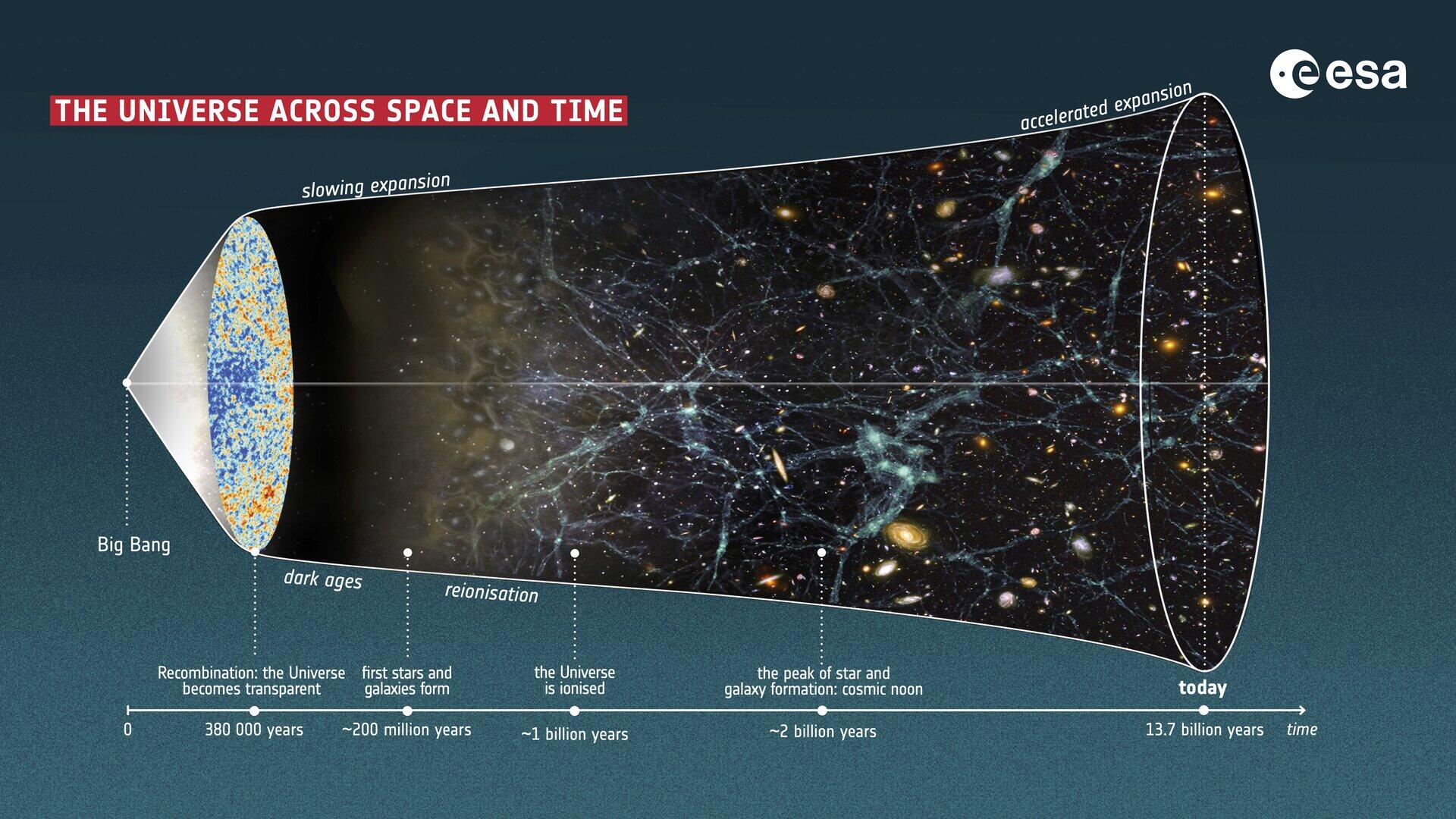Science
Astronomers Discover Universe’s Deceleration Phase, Challenging Established Theories

Recent research conducted by astronomers has revealed that the universe may be entering a phase of decelerated expansion, challenging long-standing theories in cosmology. The study, led by Professor Young-Wook Lee from Yonsei University in South Korea, suggests that dark energy, a mysterious force believed to be driving the universe’s expansion, evolves more quickly than previously understood.
According to the findings, referred to as the “Hubble residual,” the current analysis provides strong statistical evidence linking the expansion rate of the universe to the age of its host. Professor Lee emphasized the significance of the results, stating, “Our study shows that the universe has already entered a phase of decelerated expansion at the present epoch and that dark energy evolves with time much more rapidly than previously thought.”
Implications for Cosmology
If these results hold true, they could represent a fundamental shift in our understanding of cosmology, especially since the concept of dark energy has been part of scientific discourse for the last 27 years. The discovery of dark energy in 1996 initially supported the idea that the universe’s expansion was accelerating. This new perspective could prompt a reevaluation of existing models and postulate fresh avenues for research.
The study’s implications extend beyond theoretical physics, potentially affecting how scientists approach the universe’s fate. An evolution in our understanding of dark energy could alter predictions regarding the ultimate fate of the universe and how galaxies interact over cosmic timescales.
Future Research Directions
As scientists work to confirm these findings, further investigations will be essential to exploring the relationship between dark energy and the universe’s expansion. The potential confirmation of a deceleration phase opens up discussions about the nature of dark energy itself and its role in the cosmos.
Researchers are encouraged to conduct additional studies to validate these results, as confirmation would likely reshape the field of cosmology. The study highlights the dynamic nature of scientific research, where new data can lead to significant shifts in understanding, paving the way for future discoveries about the universe.
The ongoing exploration of these cosmic questions not only captivates the scientific community but also engages the public’s imagination about the universe we inhabit. As research continues, the quest to unravel the mysteries of dark energy remains at the forefront, promising to expand our knowledge and deepen our understanding of the cosmos.
-

 Science3 weeks ago
Science3 weeks agoInterstellar Object 3I/ATLAS Emits Unique Metal Alloy, Says Scientist
-

 Science3 weeks ago
Science3 weeks agoResearchers Achieve Fastest Genome Sequencing in Under Four Hours
-

 Politics3 weeks ago
Politics3 weeks agoAfghan Refugee Detained by ICE After Asylum Hearing in New York
-

 Business3 weeks ago
Business3 weeks agoIconic Sand Dollar Social Club Listed for $3 Million in Folly Beach
-

 Health3 weeks ago
Health3 weeks agoPeptilogics Secures $78 Million to Combat Prosthetic Joint Infections
-

 Lifestyle3 weeks ago
Lifestyle3 weeks agoJump for Good: San Clemente Pier Fundraiser Allows Legal Leaps
-

 Science3 weeks ago
Science3 weeks agoMars Observed: Detailed Imaging Reveals Dust Avalanche Dynamics
-

 World3 weeks ago
World3 weeks agoUS Passport Ranks Drop Out of Top 10 for First Time Ever
-

 Health3 weeks ago
Health3 weeks agoResearcher Uncovers Zika Virus Pathway to Placenta Using Nanotubes
-

 Business3 weeks ago
Business3 weeks agoMcEwen Inc. Secures Tartan Lake Gold Mine Through Acquisition
-

 Entertainment3 weeks ago
Entertainment3 weeks agoJennifer Lopez Addresses A-Rod Split in Candid Interview
-

 Business3 weeks ago
Business3 weeks agoSan Jose High-Rise Faces Foreclosure Over $182.5 Million Loan









